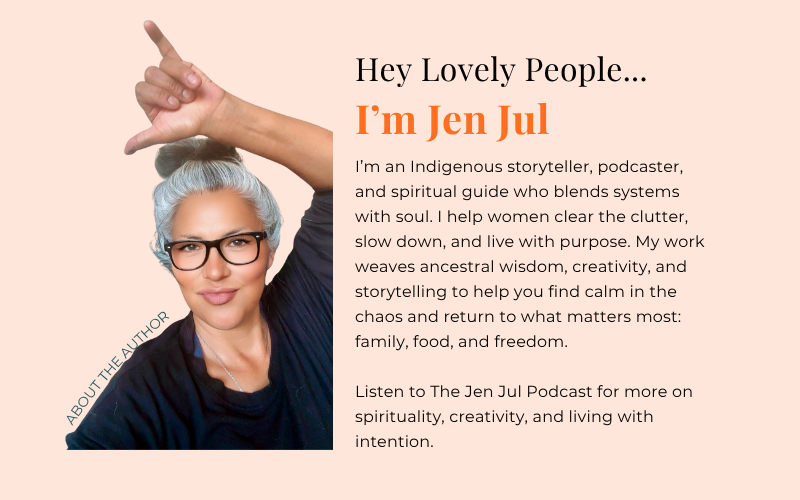From Corporate Reject to Bridge Builder: What I Learned from 100+ Rejections in Denmark

November 3, 2025
Denmark said no to me well over 100 times.
Every job application. Every interview. Every “we went with someone else” email. Every “you’re overqualified” conversation. Every silence after a promising meeting.
For years, I thought I was unemployable.
Turns out, I was just building something else.
If you’ve ever faced rejection that made you question everything, this story is for you. Because sometimes the door has to slam shut before you realize you were never meant to walk through it. Sometimes you have to face a career change after so much rejection. Sometimes, you were meant to be an entrepreneur.
The Setup: An MBA and Nowhere to Go
Let me paint the picture.
I’m an Indigenous woman from rural Alaska with 10+ years of executive leadership experience across three countries. I’ve run boards, managed organizations, led operations, and built a tribal organization from the ground up.
I got my MBA. I moved to Denmark with my family. Invested time, money, and energy into building what I thought was the perfect CV (resume).
And then I started applying for jobs for what seems like an eternity.
The Danish job market looked at all of that and said: no.
Not “not right now.” Not “maybe next time.” Just no.
Over and over and over again.
The Reality of Job Hunting as an Immigrant in Denmark
Here’s what nobody tells you about job hunting in Denmark as an immigrant:
The qualifications that got you hired everywhere else don’t translate. The experience that made you valuable in other countries doesn’t matter here. The networks that supported you don’t exist yet.
And even when you do everything right, learn the language, understand the culture, tailor your applications, network strategically, you still hit walls you can’t see.
Hidden bias. Cultural gatekeeping. The unspoken preference for “Danish experience.” The assumption that international backgrounds are liabilities, not assets.
I watched people with half my experience get jobs I was overqualified for. I sat through interviews where I could see the interest die the moment they realized I wasn’t Danish. Which happens pretty fast considering I’m brown and have grey hair that walks in before me. And I got feedback that made no sense: “You’re too experienced.” “You don’t have Danish experience.” “We’re looking for someone who better fits our culture.”
Translation: you don’t fit here.
The Breaking Point
There’s a specific kind of desperation that comes from repeated rejection.
At first, you think it’s a fluke. Bad timing. Wrong fit. You adjust your resume, refine your approach, try again.
Then you start questioning yourself. Maybe you’re not as qualified as you thought. Maybe your experience doesn’t matter. Maybe you should aim lower.
Then you start questioning everything. Your worth. Your skills. Your decision to move here in the first place.
I hit that breaking point around rejection number 80 or 90. (I lost count after a while.)
I had two choices: keep banging on closed doors, or build my own.
The Pivot That Wasn’t a Pivot
Here’s the thing: I didn’t choose entrepreneurship. It chose me.
Or more accurately, I was forced into it.
This wasn’t some romantic story about following my passion or betting on myself. This was survival. I needed income. My family needed stability. And the traditional path wasn’t working.
So I started building.
At first, it was consulting work. Using my corporate skills to help organizations with strategy and operations. Safe. Practical. The kind of work that made sense on paper.
But something else started happening.
People kept asking me for things that didn’t fit the “business consultant” box. They wanted to know what I was sensing energetically. They wanted spiritual guidance alongside the strategy. They wanted someone who could read the room in ways that had nothing to do with spreadsheets.
And I kept trying to separate those things.
Because you don’t lead with “I’m also a medium” in business consulting, right? You don’t talk about ancestral wisdom when you’re pitching corporate clients. You don’t mention the spiritual work when you’re trying to build credibility in a new market.
Except people kept asking for it anyway.
The Awakening in Greenland
While all of this was happening, something else shifted.
I traveled to Greenland and worked with an Inuit shaman named Rakel. She helped me remember what I’d spent decades trying to suppress: my intuitive gifts.
I’ve been knowing things others don’t since I was a kid. Growing up in Alaska, I learned early that there are ways of knowing that don’t come from books or business courses. I’d worked as a medium. I’d read energy. I’d helped people navigate unseen forces.
But I’d also learned to hide it.
In corporate America, you don’t exactly lead with “I talk to spirits.” So I learned to code-switch. To be the strategic, data-driven executive they expected while quietly ignoring the intuitive hits that were almost always right.
Rakel helped me remember what I’d been ignoring: my spiritual gifts and my strategic brain aren’t opposites. They’re partners.
And that’s when everything clicked.
The Business Model Denmark Didn’t Want
Denmark’s job market rejected me because I didn’t fit their boxes.
Too experienced for some roles. Not Danish enough for others. Too multi-faceted to categorize easily.
But that’s exactly what made my business work.
Because the people who needed me weren’t looking for someone who fit in a box. They were looking for someone who could bridge multiple worlds.
The creative entrepreneurs who needed both spiritual depth and strategic success.
The intuitives who knew what to do but couldn’t figure out how to make it sustainable.
The visionaries drowning in execution who needed both systems and soul work.
I became the bridge I was always meant to be.
Not the corporate executive who hides her spiritual gifts. Not the spiritual practitioner who avoids talking about business. But the integrated version. The one who speaks both languages.
What Rejection Actually Taught Me
Looking back, every rejection was market research.
Rejection #1-50: You don’t fit in traditional corporate structures. Stop trying.
Rejection #51-100: Your range is a liability in their world. It’s an asset in yours.
Rejection #100+: Build something else that only you can build.
Here’s what those 100+ rejections actually taught me:
1. Rejection is redirection. When every door closes, maybe you’re not supposed to walk through them. Maybe you’re supposed to build your own.
2. Being unemployable isn’t a failure. Sometimes it means you’re meant to create something different that doesn’t exist yet.
3. Your “too much-ness” is your offering. The things that make you uncategorizable are exactly what make you valuable.
4. Integration beats specialization. In a world of specialists, integrators are rare. And rare is your superpower.
5. Your unique position comes from your actual life. I’m not a bridge between strategy and spirit because I read about it. I’m a bridge because I’ve lived in both worlds and refused to choose.
How Being Unemployable Became My Business Model
Here’s the irony: the things that made me unemployable made my business successful.
My corporate experience + my spiritual gifts = a perspective nobody else has.
My executive background + my Indigenous wisdom = solutions that honor both the practical and the profound.
My strategic brain + my intuitive knowing = the ability to see patterns others miss.
That’s not a liability. That’s a competitive advantage.
Now I work with people who need exactly that combination. People who are tired of choosing between success and alignment. People who want systems that work without losing their soul. People who need someone who gets the whole picture.
And I can charge well for it. Because what I offer isn’t available anywhere else.
What This Means for You
If you’re facing rejection right now, here’s what I want you to know:
Rejection isn’t always a no. Sometimes it’s a redirection.
Maybe the doors are closing because you’re not supposed to fit through them. Maybe you’re being pushed toward something that doesn’t exist yet. Maybe your “unemployability” is actually your calling.
I’m not saying entrepreneurship is the only path. But I am saying this: if the traditional paths keep rejecting you, maybe it’s time to stop trying to fit and start building something that actually fits you.
The Gift in the Closed Door
Denmark didn’t want me in their system.
So I built my own.
And it turns out, that’s exactly what I was supposed to do.
Because now I get to work with multi-passionate creatives who don’t fit in boxes. I get to help people build businesses that honor both profit and purpose. I get to be the bridge between worlds that are kept artificially separate.
I get to show up whole.
And I never would have had that if the doors hadn’t closed.
Your Rejection Might Be Your Redirection
So if you’re reading this in the middle of your own rejection story, consider this:
What if the closed doors are actually showing you where to build?
What if your “too much-ness” is exactly what someone needs?
What if being unemployable just means you’re meant to create something that doesn’t exist yet?
What if the rejection isn’t about your worth, but about your direction?
I’m not going to pretend it’s easy. Building your own thing is hard. It’s uncertain. It’s terrifying.
But you know what’s harder?
Spending your life trying to fit through doors that were never meant for you.
What Comes Next
If you’re in your rejection era and you’re ready to build something different, I see you.
I work with people who are navigating exactly this: the pivot from trying to fit in to building something that actually fits them.
Whether you need strategic clarity, spiritual guidance, or someone who can help you see the patterns in your chaos, let’s talk.
And if you want to hear more stories like this, subscribe to my podcast, where we talk about what it really means to build a life outside the box.
You’re not broken. You’re not unemployable. You’re just building something else.
A Final Word
Denmark said no to me over 100 times.
Every rejection hurt. Every closed door felt personal. Every “we went with someone else” email made me question everything.
But here’s what I know now: those rejections were the best thing that ever happened to me.
Because they forced me to stop trying to fit and start building. They pushed me to integrate the parts of myself I’d been keeping separate. They showed me that being “unemployable” by their standards just meant I was meant to create my own way.
And so are you.
